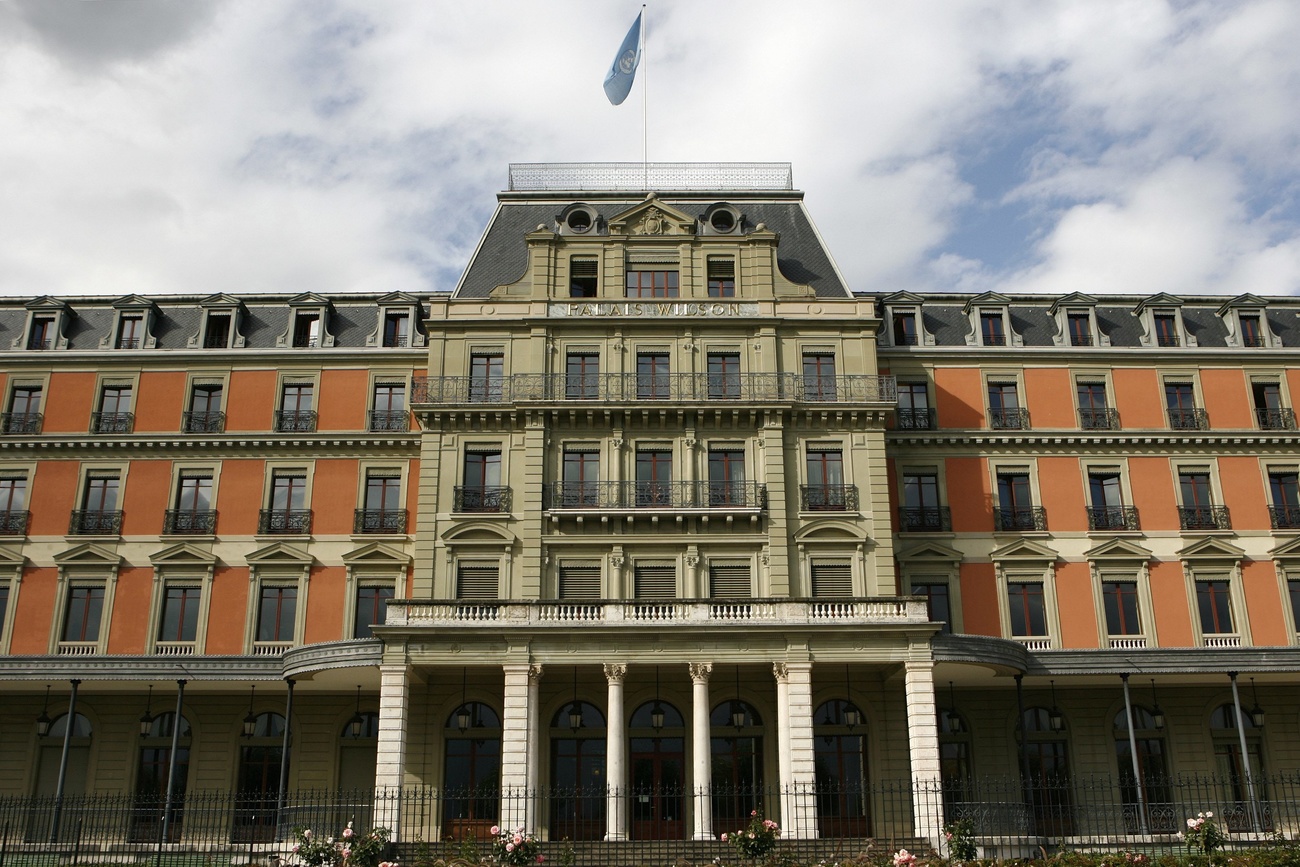
UN criticises Switzerland over short torture sentences

Sentences in Switzerland for acts of torture committed during crimes against humanity or war crimes are too short, according to the United Nations Committee against Torture.
Treatment of asylum-seekers and discriminatory behaviour by police officers were other concerns raised by independent experts on Wednesday during a review of Switzerland.
Under the Swiss justice system, the penalty for torture as a crime against humanity is “only” five years, and three years for torture committed as war crimes, said the UN Committee against Torture’s co-rapporteur, Todd Buchwald, on Wednesday.
“These penalties seem rather low for crimes of this magnitude,” said the American expert. “What kind of signal are we sending?”
The Swiss delegation, led by Bernardo Stadelmann, deputy director of the Federal Office of Justice, did not immediately respond to this question.
But Buchwald welcomed as “very good news” a parliamentary initiative that recognises the crime of torture in the Swiss criminal code. Several UN committees and states had been calling for this legal change for years. The Swiss government had previously rejected the demand, arguing that existing laws were sufficient.
Stadelmann reiterated the Federal Council’s wish for “zero tolerance” for acts of torture.
+ Expert group criticises systemic racism in Switzerland
The UN Committee against Torture is carrying out a review of Switzerland, New Zealand, Romania and Spain from July 10-28External link. The four countries are among the 173 parties to the Convention against Torture and Other Cruel, Inhuman or Degrading Treatment or PunishmentExternal link. They are required to undergo regular reviews by the committee of ten independent international experts on how they are implementing the treaty.
+ Swiss launch national human rights watchdog
On Wednesday, Buchwald also welcomed the launch of the new Swiss Human Rights Institution, which has been years in the making. But he remarked that the annual funding of CHF1 million ($1.1 million) seemed insufficient. The cantons also support the institution with infrastructure, and it can attract additional resources by providing services, a Swiss government official replied.
Treatment of asylum-seekers
Buchwald also focused on the treatment of asylum-seekers and revelations of cases of abuse in Swiss federal asylum centres.
+ Security guards at Swiss asylum centre convicted of endangering life
He declared himself in favour of a systematic investigation mechanism for complaints of sexual violence.
He also expressed concern about the lack of separation between minors and adults and between women and men in asylum centres. Buchwald’s Chinese colleague, Huawen Liu, also had concerns about the continued detention of 15- to 18-year-olds in asylum detention centres.
+ Swiss asylum requests expected to remain high in 2023
Other issues raised included discriminatory or racist behaviour by police officers and Switzerland’s use of special deportation flights.
Despite these critical points, the two co-rapporteurs highlighted Switzerland’s international commitment. “In its foreign policy, it is a leader against torture,” said Buchwald. Liu said Switzerland was “among the countries that collaborate best” with the UN committee.
Ahead of Wednesday’s review, a report was released by over 100 NGOs about the situation in Switzerland and its respect for the treaty. They deplored reports of ill-treatment in federal asylum centres, referring to them as “acts of torture”, and the deportation of rejected asylum-seekers to unsafe countries. The NGOs also condemned the lack of health services in detention, particularly in asylum centres.
The review of Switzerland is due to continue on Thursday.

In compliance with the JTI standards
More: SWI swissinfo.ch certified by the Journalism Trust Initiative



























You can find an overview of ongoing debates with our journalists here . Please join us!
If you want to start a conversation about a topic raised in this article or want to report factual errors, email us at english@swissinfo.ch.